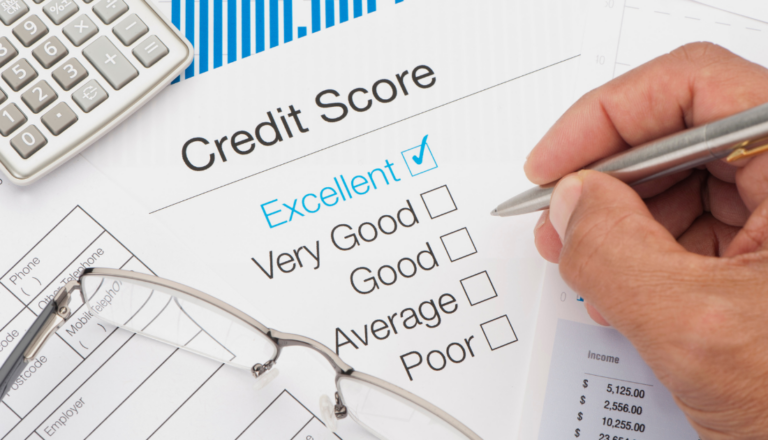Credit scores are an incredibly important financial tool. Many doctors, especially trainee and early-career doctors, are burdened by a low credit score because of the significant debt they take on while receiving low pay.
Credit scores affect your interest rate and options for personal loans, mortgages, practice loans and other banking products. No matter your financial and personal plans, you are likely to need at least one of these products in your life, having a good credit score will help in those moments.
So, how can doctors overcome a low credit score and work their way to a high credit score? Because every person has a different credit history, there is no one fast track to raising your credit score.
We are sharing a list of seven ways you could improve your credit score to get you started on the road to a higher credit score.
What is considered a good credit score?
Credit scores range from 300 to 850. A higher credit score signals to lenders that you as a borrower are lower risk and more likely to make on-time payments.
FICO credit scores, the most widely used credit score type, are classified as follows, according to Experian:
- Very poor: 300 to 579
- Fair: 580 to 669
- Good: 670 to 739
- Very good: 740 to 799
- Excellent: 800 to 850
Because an 800 credit score is considered excellent, it is a good goal to have when aiming to raise your credit score. An excellent credit score will help you receive the best rates for financial products and a greater chance of approval.
Seven ways to improve your credit score as a doctor
Pay your bills on time
The most influential factor in determining FICO credit scores is payment history. This makes up 35% of your total score. When a lender is determining creditworthiness, a history of on-time payments indicates that you will likely handle future debts responsibly.
Lower credit utilization
The second most influential factor is amounts owed, making up 30% of the total score. If you are using a lot of your available credit, lenders may think you are overextended and at a higher risk of defaulting. To reduce your credit utilization, consider paying down your credit card balances.
Become an authorized user
If you are in school or residency, you may be new to building credit and have a thin credit file. Becoming an authorized user on another person’s account can help you increase your credit score quickly.
Find a relative or friend that has a high credit limit and good history of on-time payments who will allow you to be added to their account as an authorized user; they don’t even have to let you use the card for your credit to improve. If you already have established credit, this will have less of an effect than for those with very little credit history.
Review your credit reports
As you build and use credit, it’s important to regularly review your credit report to know what is helping you and what may be causing any issues. Watch out for late or missed payments, high credit card balances, collections and judgements as these can all lower credit scores.
Additionally, if you notice a mistake on your credit report, your credit score could be lowered. You can dispute these mistakes to improve your score.
You are entitled to a free copy of your credit reports from the three credit bureaus, Equifax, Experian, and TransUnion, once a year. You can check your score more often through soft credit inquiries. Banks often offer free credit monitoring to their customers; check yours to enroll and get notifications when your score changes.
Limit requests for new credit
In FICO scores, 10% of scores are based on new credit. Research shows that opening several credit accounts in a short period of time represents a more risky borrower. Try to avoid applying for new credit cards, a mortgage, an auto loan and other forms of credit within a short amount of time. Banks could see multiple credit requests as you facing financial difficulties and being in need of money, making you a bigger risk.
Self-report favorable payment history
You may be able to add information to your credit report to boost your credit score with programs such as Experian Boost and UltraFICO, which enable you to strengthen a thin credit record with other financial data.
You may be able to add payment history from rent, telecommunications and utility payments to your report. We recommend only adding this information if it is favorable and you have a history of on-time payments.
Don’t close old credit accounts
Closing a credit account can affect two areas of your credit score, credit utilization and length of credit history. Credit utilization considers your balance compared to your available credit. Closing a credit card would reduce the amount of credit available to you, so closing a credit card would cause your credit utilization to go up and lower your credit score.
Additionally, closing a credit card would reduce the length of your credit history. You may not see the effects immediately, but your score could take a hit when the closed accounts fall off of your credit report.
The road to improving your credit score
Depending on which methods you use to improve your credit score, it may take some time to see the positive impact. If you plan to buy a home or open a practice in the next few years, now is the time to improve your credit score.
The sooner you begin making changes to improve your credit, the sooner you will see results!
More credit score resources
To learn more about credit scores, visit our Resources page or check out one of our curated articles here:

